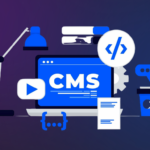Blogging is the process of maintaining a blog can be an exciting adventure in self-actualization, art and, sometimes, even income. It is a very powerful platform to share what you love, to create whatever interest you have to start getting online or to make money in the internet by blogging. In this article, we will bring you through step by step approach from how to choose a subject that falls in the blog niche, to how to market the blog.
1. Understanding Blogging
A. What is Blogging ?
The definition of blogging and what blogging is all about before moving to the process of how to start blogging. Blogging on the other hand can be described as continually posting the content on a given website.

They can be individual, general or business websites FOR THE TOPIC: Blogs may include personal diaries, work-related web page or topic-centered like travelling, computing, fitness, and money. So, I would like to summarize that there are three key elements to become a successful blogger passion, persistence and strategy.
Different types of blogs include:
- Personal blogs: These are often inclined to the authors’ views, their life, and what they undergo on a daily basis.
- Professional blogs: These usually specialize in giving information and advice on a particular sector or the line of work.
- Niche blogs: These are aimed at a particular demographic or niche, like, touring & hospitality, cuisine, gadgets, & gizmos.
Blogging has since developed since its early use in the late 1990s and has been through tremendous changes. First, Blogs started out as just online diaries and have since evolved to become tools for dialogue, advertising and advocacy.
B. Why do People Start Blogging?
Starting a blog can be a rewarding endeavor for several reasons:

- Benefits of blogging for personal expression: It provides information disclosure and creative freedom for people, especially for those who want to reach more people to gain their attention.
- Blogging as a tool for building a brand: It may be useful in building credibility and trust of the readers in the capability and knowledge of the author, hence improving the reputation of the writer professionally.
- Potential for income generation through blogging: There are so many ways through which bloggers can monetize their work meaning that blogging can actually be a source of income for bloggers.
C. Choosing Your of Blogging Goals
Before diving into blogging, it’s essential to set clear goals:

- Setting personal and professional objectives: Decide your purpose of blogging or your goals, which may be to share knowledge spread the word, socialize or even make money.
- Understanding your target audience: Basically, it will enable you to know who your target audience is as well as the kind of content that appeals to them and the one they need.
2. Choosing Your Niche
Choosing your focus area is probably one of the most important things you can do for your blog. A niche is the specialized subject area of interest or specialization, that your blog is to major on. Here are some tips for choosing a niche:

a. Identify Your Passion and Expertise
- Passion: Post on areas that matter to you as a person in the society. Your positive attitude will be reflected in all your writing and capture the readers’ attention.
- Expertise: Picking a specific area that you possess some background information or are willing to research. This means that your insights and expertise will make your content valuable enough.
b. Research Market Demand
- To determine the popularity of the selected niche use Google Trends, SEMrush or Ahrefs tools.
- Identify similar blogs to the topic you want to focus on in order to understand with whom you will be competing and what niches are left uncovered.
c. Evaluate Monetization Potential
Think how you can earn money on your blog. There are various ways to monetize blogs are affiliate marketing, sponsored posting, and selling of goods or services.
3. Choosing a Blogging Platform
A. Popular Blogging Platforms
Depending on the platform, blogging may be enjoyable or a horrible experience depending on the blogging platform you use. Here are the most popular platforms:

1) WordPress. org
- Pros: Very flexible, many extensions (plugins and themes), you have full control over your website.
- Cons: This involves self-hosting and more work to be done by the users.
2) WordPress. com
- Pros: It’s very simple to set up including the hosting and it is considerably cheaper.
- Cons: Less Customization, ads are shown on the free tier, less control.
3) Blogger
- Pros: Comes with no charges and has a simple UI and is compatible with Google services.
- Cons: Little amount of customization, do not look professional.
4) Wix or Square space
- Pros: Easy drag and drop controls, beautifully constructed templates.
- Cons: It could also be more costly than Word-Press and hardly as flexible. org.
B. Domain Name and Hosting
A unique domain name is important for establishing your blog’s identity:

- Importance of a unique domain name: It is useful to make an impressive web image and increases the level of trust among users.
- How to choose a reliable hosting service: In this case, it is advisable to search for a provider who has good uptime, good customer support and has the option of scalability.
- Steps to register your domain and set up hosting: There are plenty of domain registrar sites which offer free domain for the first year, select a domain name, choose a hosting plan of your blog, follow the instructions provided by the hosting provider to get your blog online.
C. Customizing Your Blog
Once your blog is set up, it’s time to make it your own:

- Selecting a theme or template: Select layout that is to your taste and the site is easy to find what you are looking for.
- Essential plugins and tools for functionality: It is recommended to add plugin capabilities for SEO capabilities enabling social sharing as well as analytics functions.
- Tips for creating a user-friendly layout: Make sure everything you write on your blog is free from jargons and that they are properly categorized with headings and follow a particular flow.
4. Setting Up Your Blog
After you decided on which platform to use it is time to create your blog. Below I have listed a very simple guideline to how you can do it via the WordPress platform. org, the most flexible option:

a) Choose a Domain Name
- The Right domain name of your blog ought to be elusive, easily memorable and should have a direct relation to the topic of your blog.

- You can register your domain from some domain registration websites such as GoDaddy, Name cheap among others.
b. Choose a Web Host

- Some of the most recognized hosting providers include Blue host, Site Ground and Host gator.
- Select a plan that will only cost as much as you are willing to pay as well as the amount of traffic you expect to receive.
c. Install WordPress

- Almost every other hosting services provider provide easy WordPress installation options through a single click.
- Continue with the installation, get through the installation wizard to set up your WordPress website.
d. Choose a Theme

- WordPress offers a variety of free themes, and it is always better to opt for these rather than you can also buy themes from sites like Theme Forest.
- Choose preferred color and font, and make the theme correspond to your company image.
e. Install Essential Plugins

- SEO Plugin: Yoast SEO or All in One SEO Pack for the search engine optimization.
- Backup Plugin: Backup Buddy or Up draft Plus for the protection of the data posted on your website.
- Security Plugin: Sucuri or Wordfence should act as your security measures for your site.
5. Crafting Your Content Strategy
Each social media platform has its function and to emphasize content is critical for readers to keep on engaging. Here’s how to build an effective content strategy:

a. Define Your Audience
- You have to identify who your audience is and what kind of people you’re targeting, what they like and dislike.
- Develop your audience avatars to help shape the content that you put out there.
b. Develop Content Ideas

- List down the best ideas or area of interests which are suitable for your narrow field of specialization and your target public.
- Some of the sites to use in identifying trending content topics include Buzz Sumo or Answer The Public.
c. Prepare a Dec-2015 Content Calendar

- Use a content calendar to plan what content you’ll create beforehand.
- There must be the deadlines, topics, and dates when the publications were made to ensure that the information is sorted in a proper manner.
d. Write Compelling Content

- Headlines: Learn how to create headlines that capture reader’s attention so that they are inclined to follow the link.
- Introduction: Use a leading statement that will grab attention of the readers and cool the mood.
- Body: Make sure that the information you add is relevant and useful, you can also use heading to emphasize the important information, if possible, add images or multimedia.
- Conclusion: To do this effectively, you must summarize key points and ensure you have a call-to-action (CTA) so that readers engage with your content.
6. Optimizing for Search Engines
Search engine optimization (SEO) assists your blog to rank well in the search engine and thus be ranking higher to increase traffic to your blog. Here’s how to optimize your blog:

a. Keyword Research
- To look for relevant keywords, you can use tools such as Google Keyword Planner, Ahrefs or SEMrush.
- It is also good to use keyword naturally in the titles, heading and other content of the page.
b. On-Page SEO
- Title Tags and Meta Descriptions: A proper SEO title and Meta description must be created for each blog post by keeping the language powerful and aggressive and incorporating the actual keywords into it.
- Headings: To enhance readability, make sure to use correct heading tags namely h1, h2 and h3.
- Internal Linking: Always use a link in the post to another relevant post in your blog so as to keep visitors glued to your blog, and also enhance your Google ranking.
c. Mobile Optimization

- It is also necessary that the blog you create is one that can be easily viewed on mobile devices because a lot of internet traffic is generated through mobile devices.
- Select good and frequent responding themes and check your website’s responsiveness from mobile browsers fluctuation continually.
d. Page Speed
- Shrink images, and use cache plugins so that your blog loads faster.
- One of the most effective ways is to take advantage of service like Google Page Speed Insights in order to discover problems that affect the performance of a website.
7. Promoting Your Blog
In other words, promotion is an effective way of expanding the readership base of a blog. Here are effective strategies to promote your blog:

a. Social Media
- facebook, twitter, iinstagram, linkedin, And Other social media platforms which you you regularly use.
- Interact with your audience and join the groups and discussions that are related to your niche.
b. Email Marketing
- Gather the contacts through the use of lead magnets like an eBook or any quality content that can attract the attention of users.
- Should send a newsletter with interesting news on a regular basis to make your subscribers interested.
c. Networking and Collaboration
- Interact with other bloggers in the same niche so as to exchange links and do guest blogging.
- Participate in the industry events and webinars in order to develop the contact list and popularize your blog.
d. Paid Advertising
- One can opt for the paid ad placements such as Google Adwords or Social media advertising to get more people to your posts.
- You should set a budget and you should also be very keen so that you can target your advertisement to the appropriate people if you want the best results.
8. Analyzing and Improving
It is imperative to review your blog often so that you know which aspects are doing well, and which aspects require your attention. Here’s how to analyze and optimize your blog:

a. Use Analytics Tools
- Integrate Google Analytics tool on your blog in a bid to monitor traffic and key behaviors of your users.
- Some of the metrics to look into includes web page hits, the bounce rates, average time spent on site, and conversion rates.
b. Evaluate Content Performance
- Understand which of the type of posts is more effective and which one requires more input.
- Operational level: it is a must to tailor your content based on the data gathered from relevant analytics and feedback from the readers.
c. Solicit Feedback
- It is important to invite the readers to share their opinion as well as their feedback.
- You should conduct opinion polls or surveys for your audience in order to get what they feel is best for you.
9. Monetizing Your Blog
After reading this article, if you have gotten a significant number of traffic to your blog, then you should consider getting a way to making money from it. Here are some popular methods:

a. Affiliate Marketing
- Suggest products or services related to your targeted segment and get paid every time people make a purchase through your referral links.
- Sign up for affiliate marketing programs such as Amazon associates Program me or Share A Sale or CJ affiliate.
b. Sponsored Posts

- Collaborate with the brands for sponsored content thus converting into monetary value.
- Make sure that this sponsored posts are relevant to your blog’s theme and that they are really useful for your readers.
c. selling products or services

- Selling eBooks, online courses etc or printable are some of the ways which help in earning money from home.
- Consulting/coaching if you have some knowledge in some field.
d. Display Ads
Another way of monetizing your blog is by joining ad networks that allow bloggers to place ads on their blog and get paid per impression or click; some of the popular ad networks include Google AdSense and Media vine.
Conclusion
Writing a blog is an incredible voyage that can be filled with many options to share oneself and enrich experience as well as to earn money. Learning the simple guidelines of blogging, selecting the appropriate blogging site, posting relevant and engaging content, advertising your blog and also learning how to make profits from your blog will offer you great potential. It is important to know that nobody starts a blog from being a professional and so take that first step and have fun!
FAQs
1) Which blogging platform should one use if one has no prior experience in blogging?
While WordPress is known for flexibility in blogging, one should also consider Blogger in case he or she does not want too many options.
2) How frequent should I be updating my blog or posting new article?
It should be performed as frequent as possible, minimum once a week, but every time you have to choose a certain frequency.
3) Is it possible to begin with a blog without getting a professional blog platform to do so?
Yes, blog creating platforms such as the Blogger and the WordPress. com that are free of charge might also come with some few quirks or restrictions.
4) Can I make money out of blogging and if so, how soon?
It is quite different; some bloggers are lucky to earn within months while others may take years to get the right balance.
5) What ought to be avoided while starting a blog?
Don’t forget about SEO, don’t communicate with your audience, and don’t have well-defined specialization or direction.








